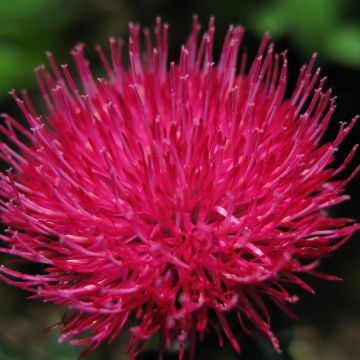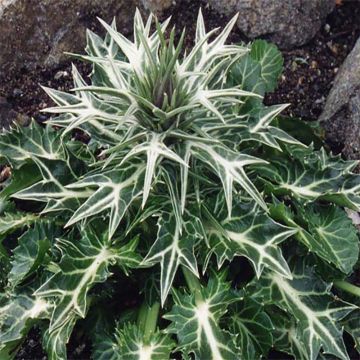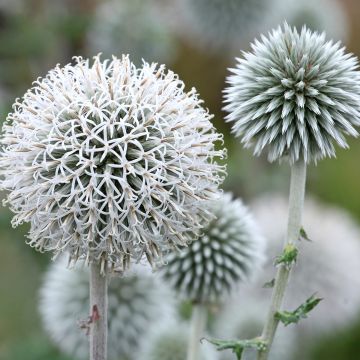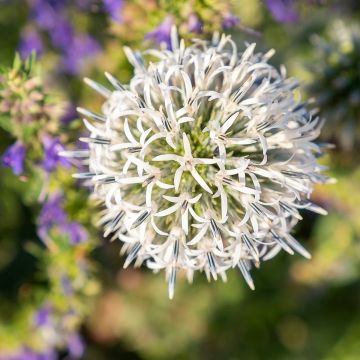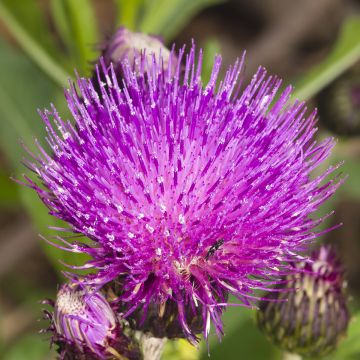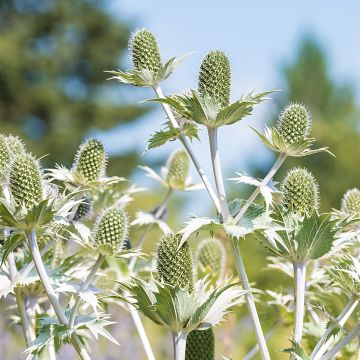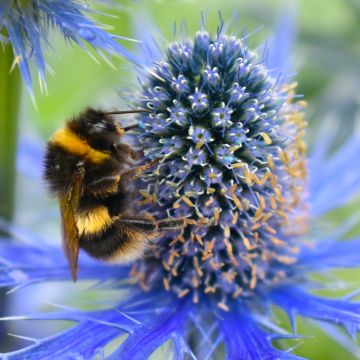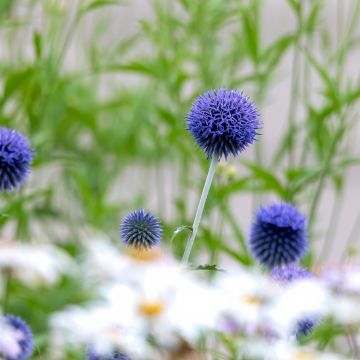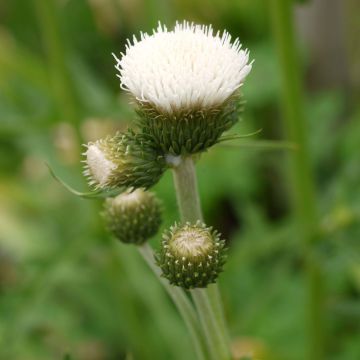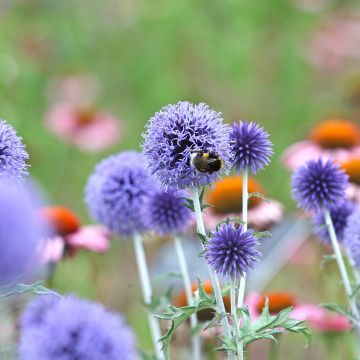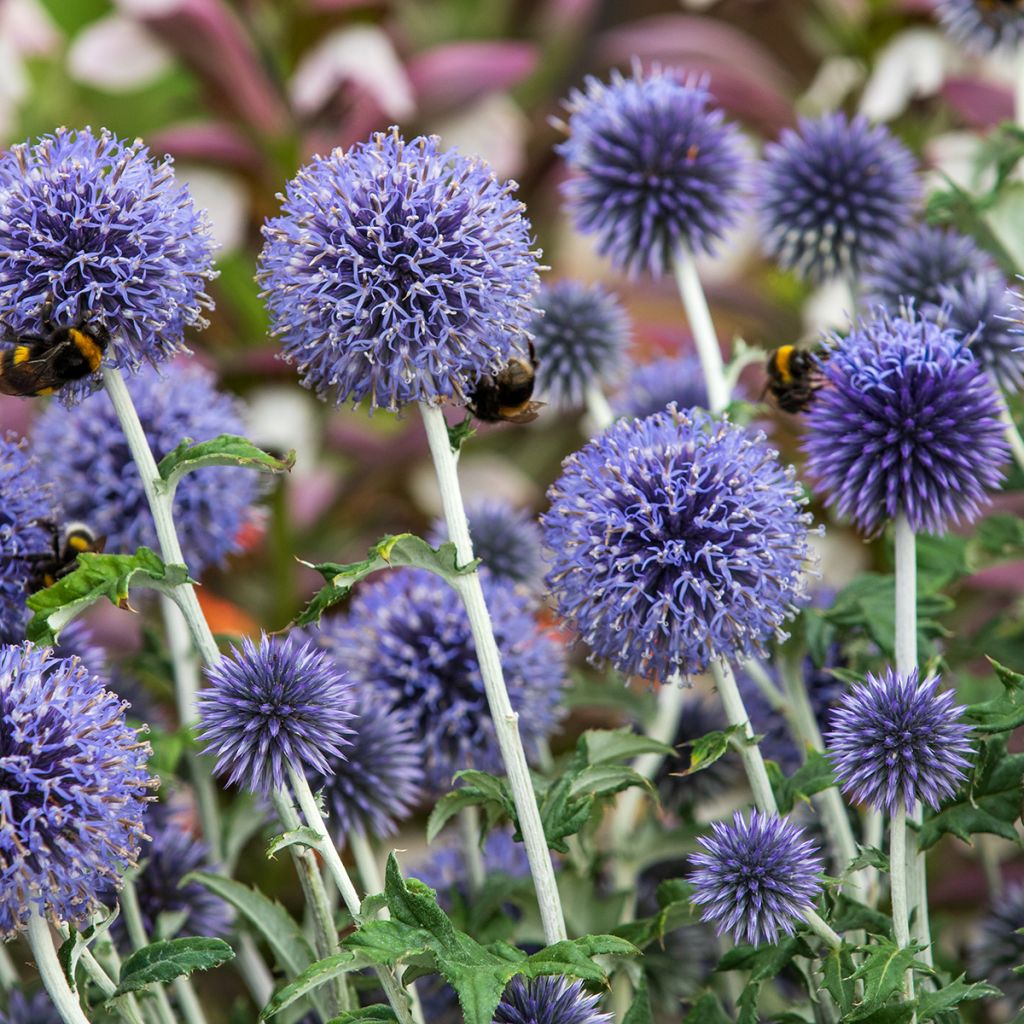

Echinops ritro
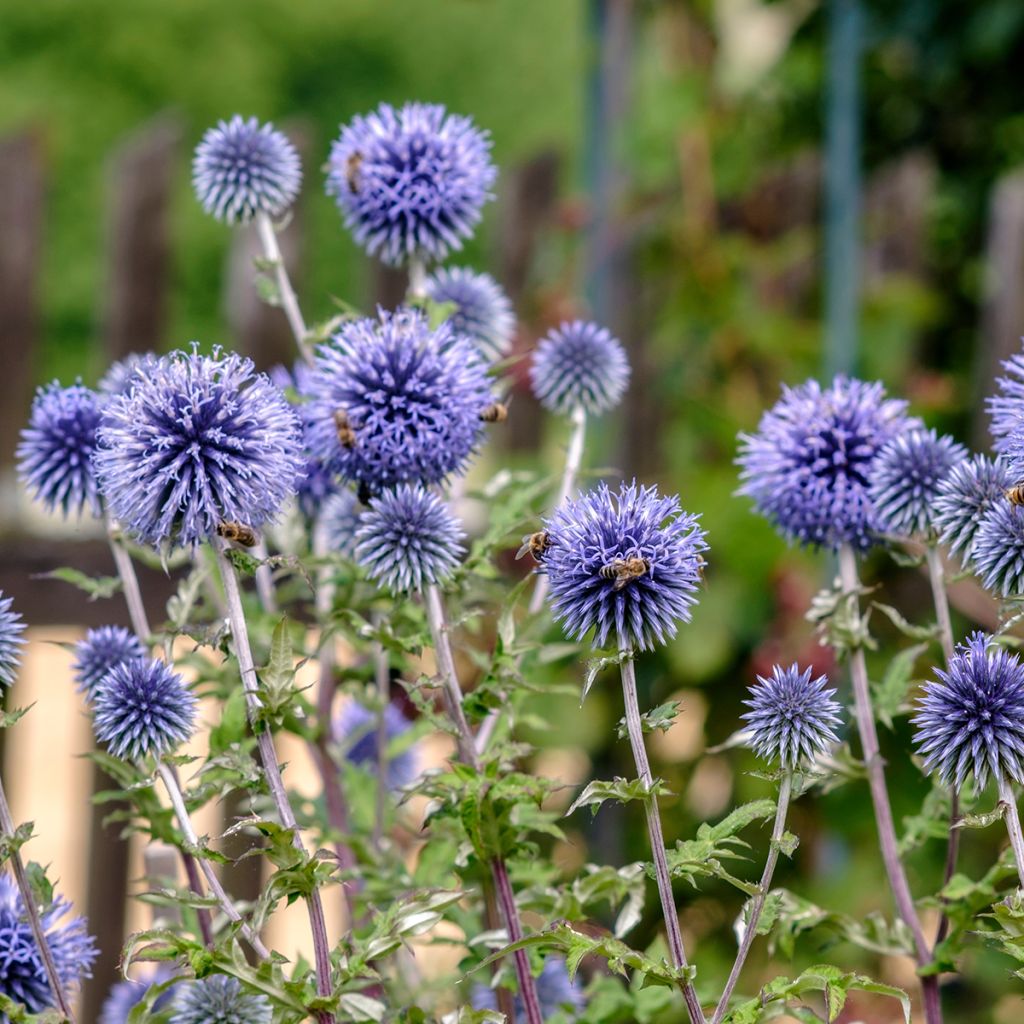

Echinops ritro
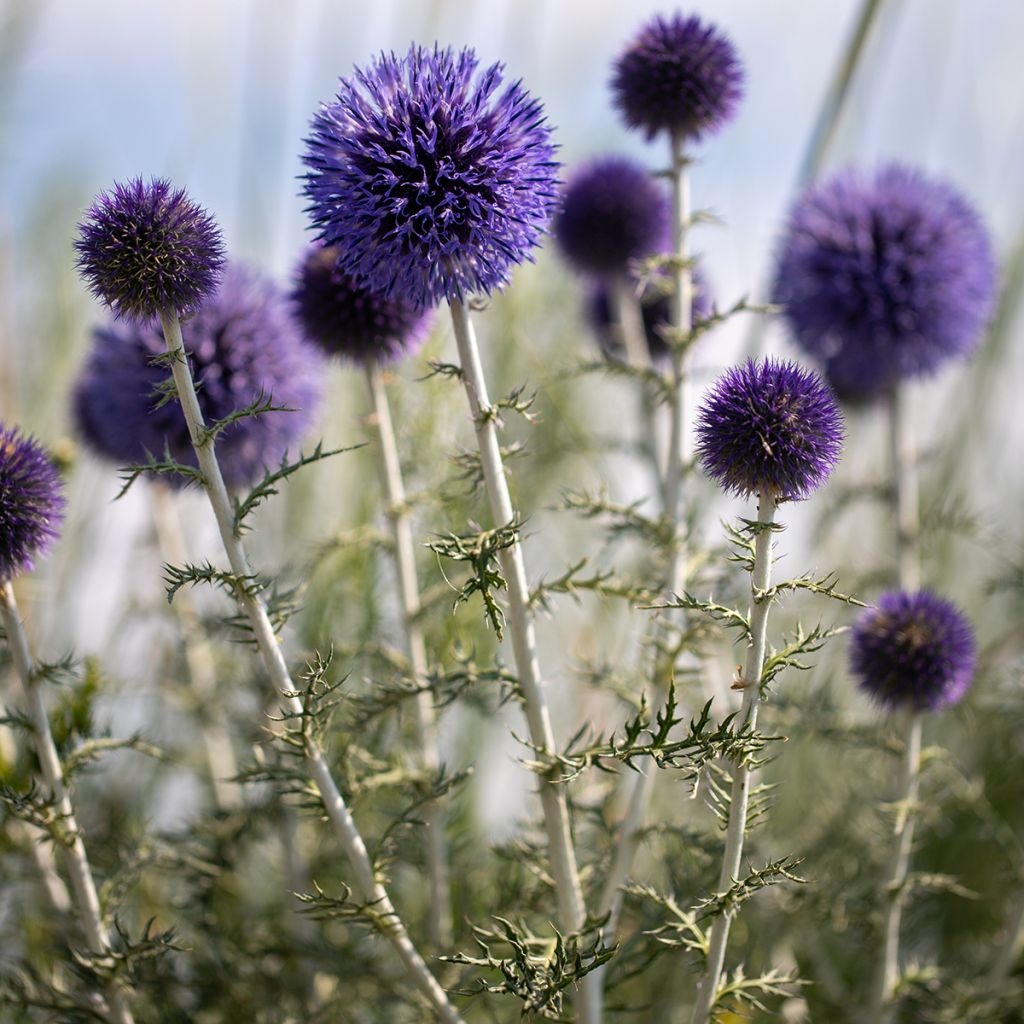

Echinops ritro
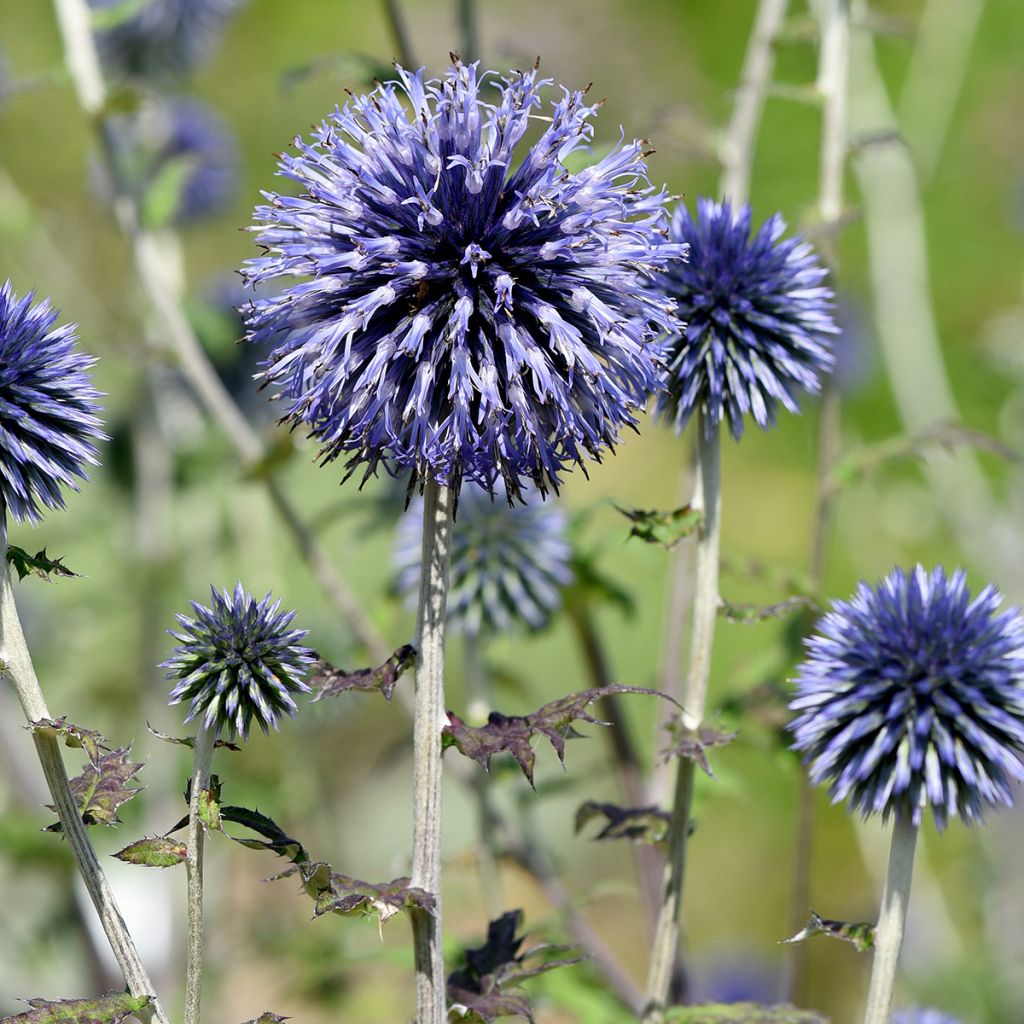

Echinops ritro
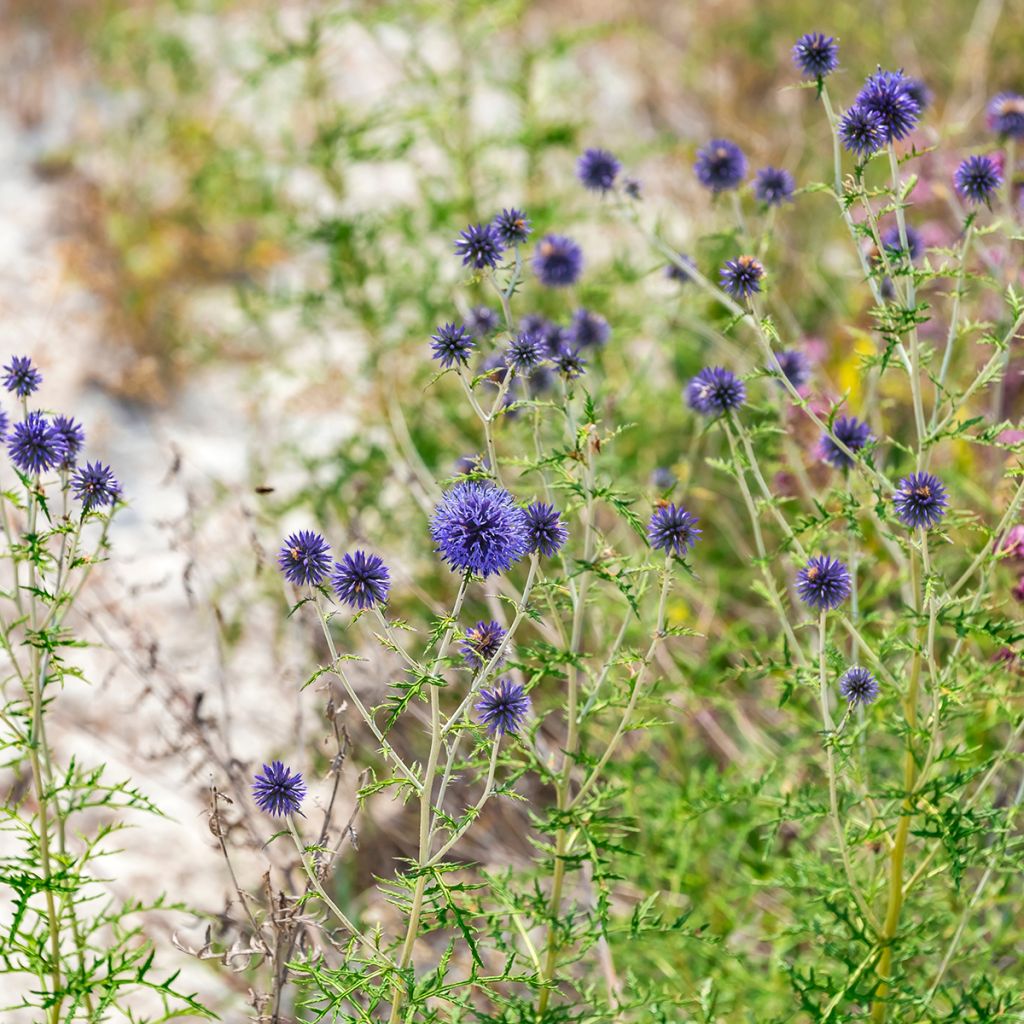

Echinops ritro
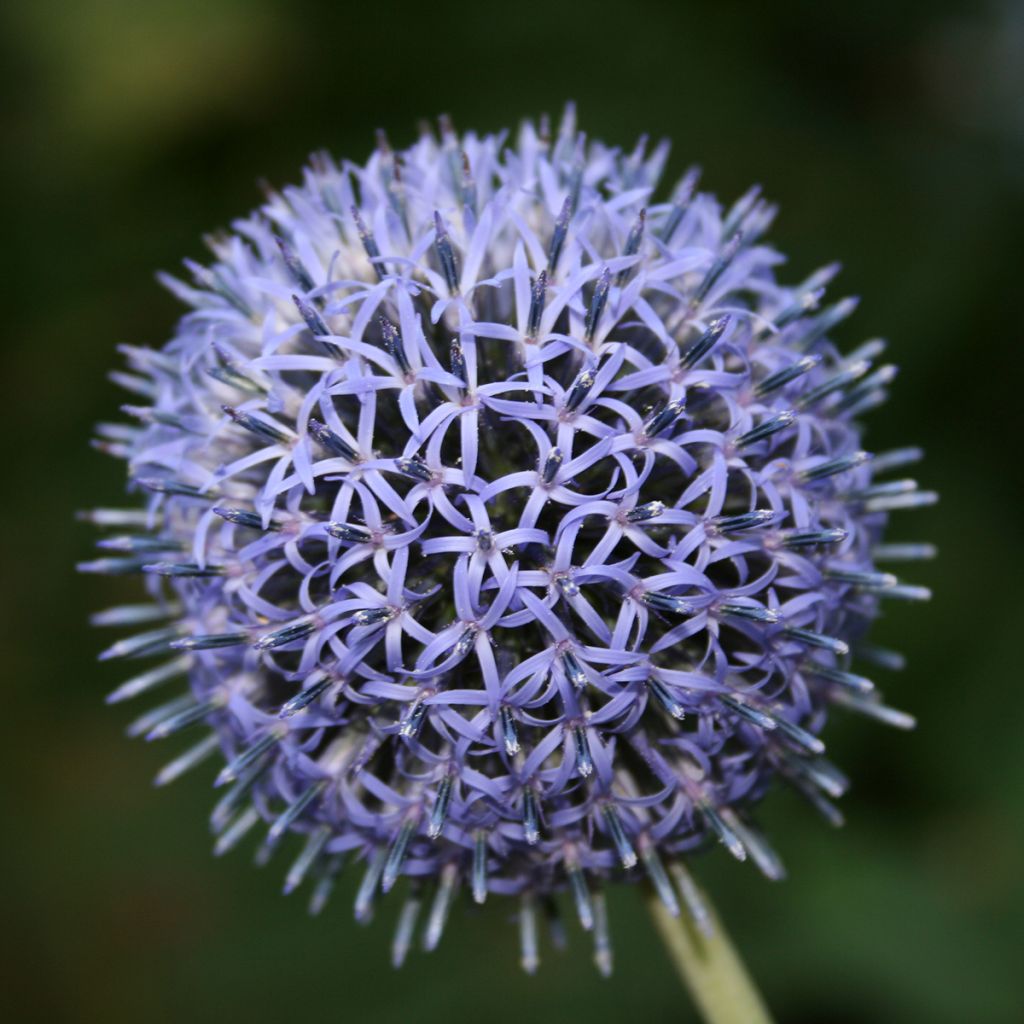

Echinops ritro
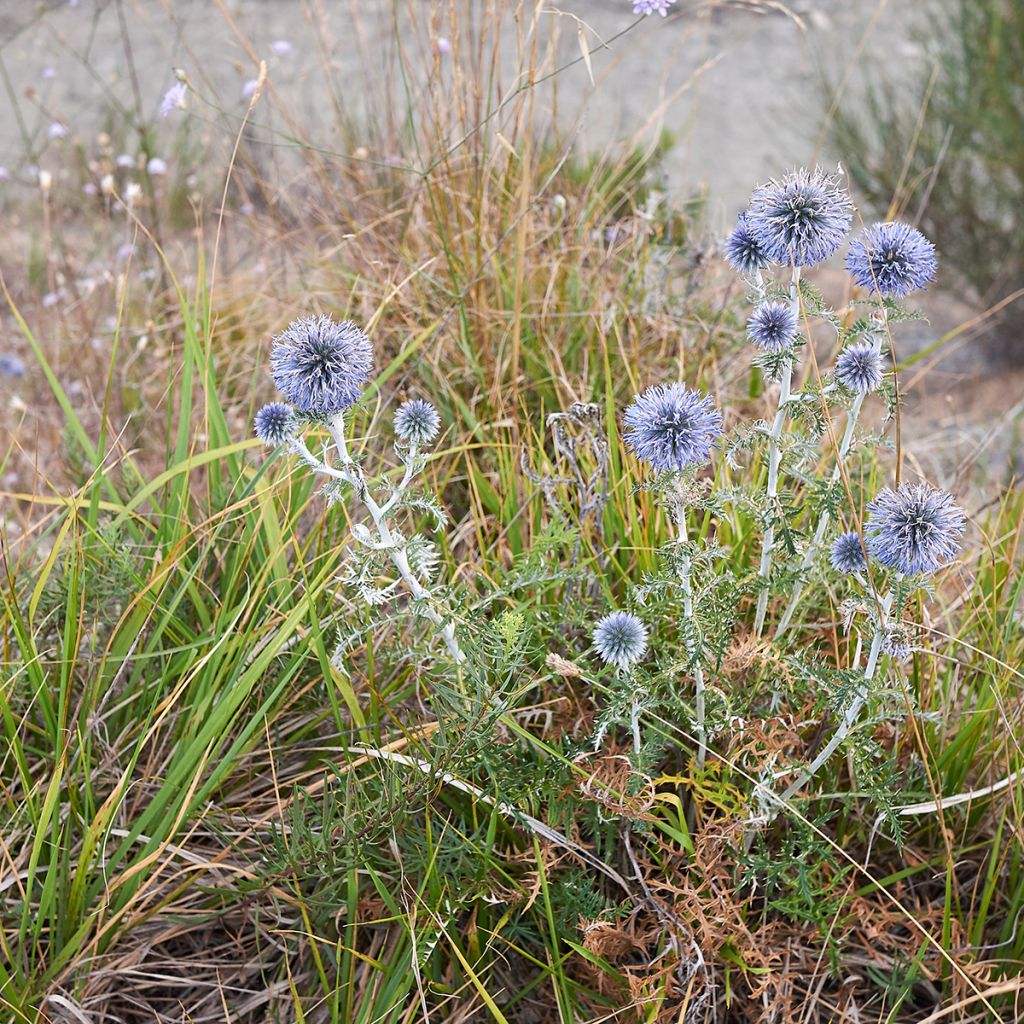

Echinops ritro
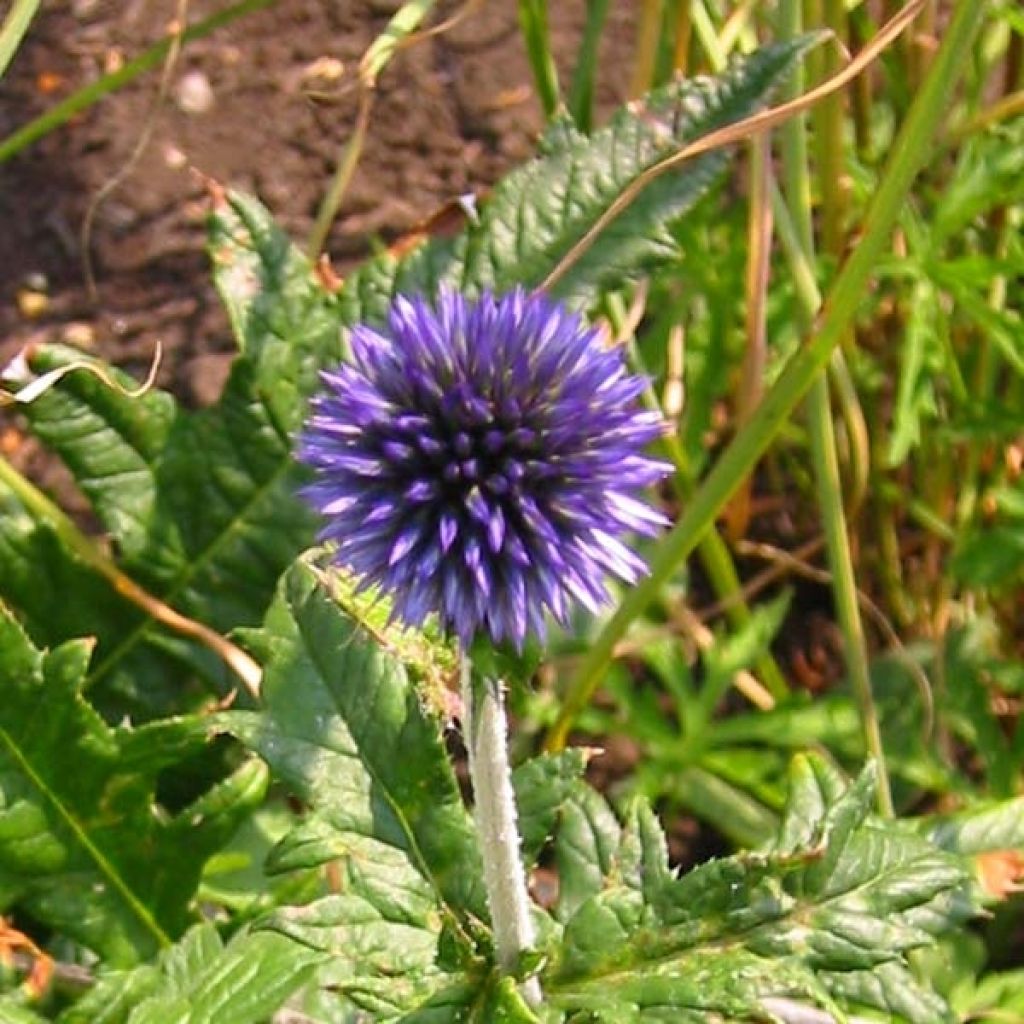

Echinops ritro
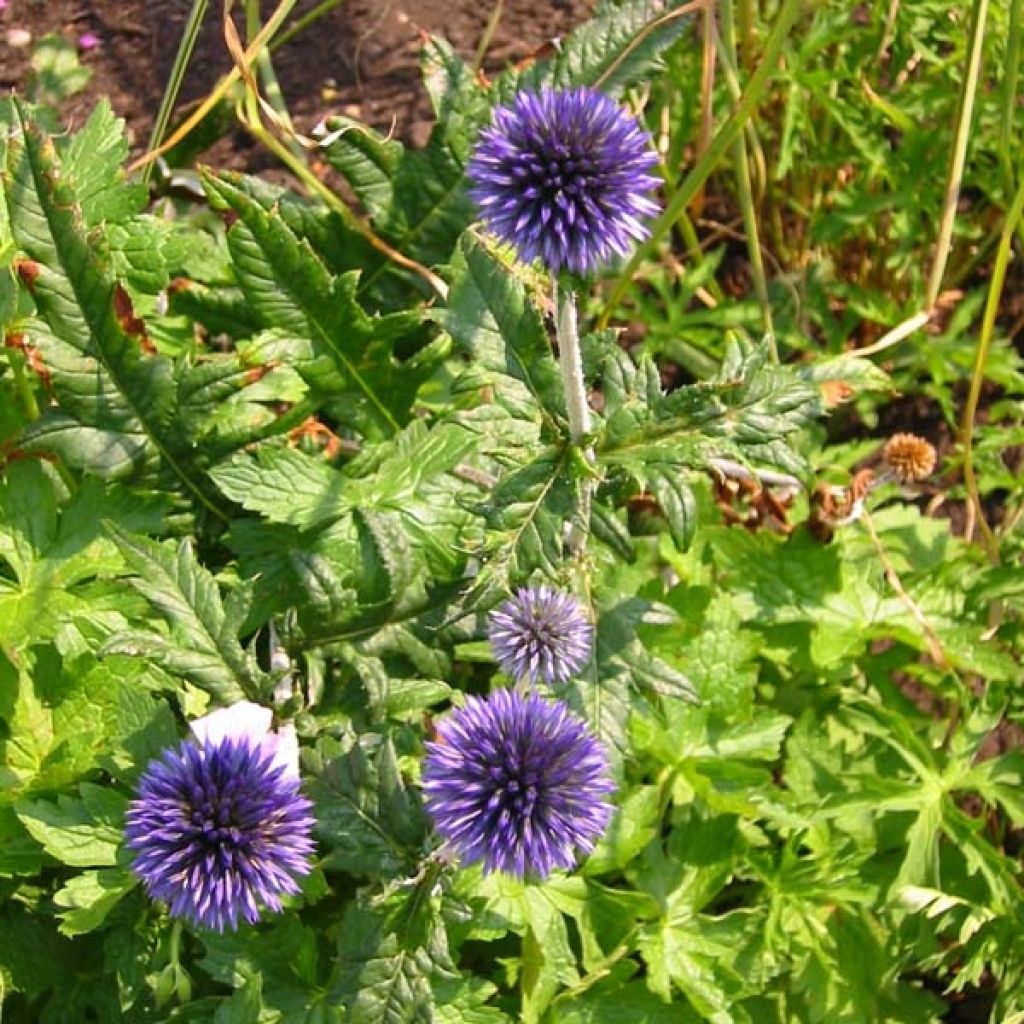

Echinops ritro
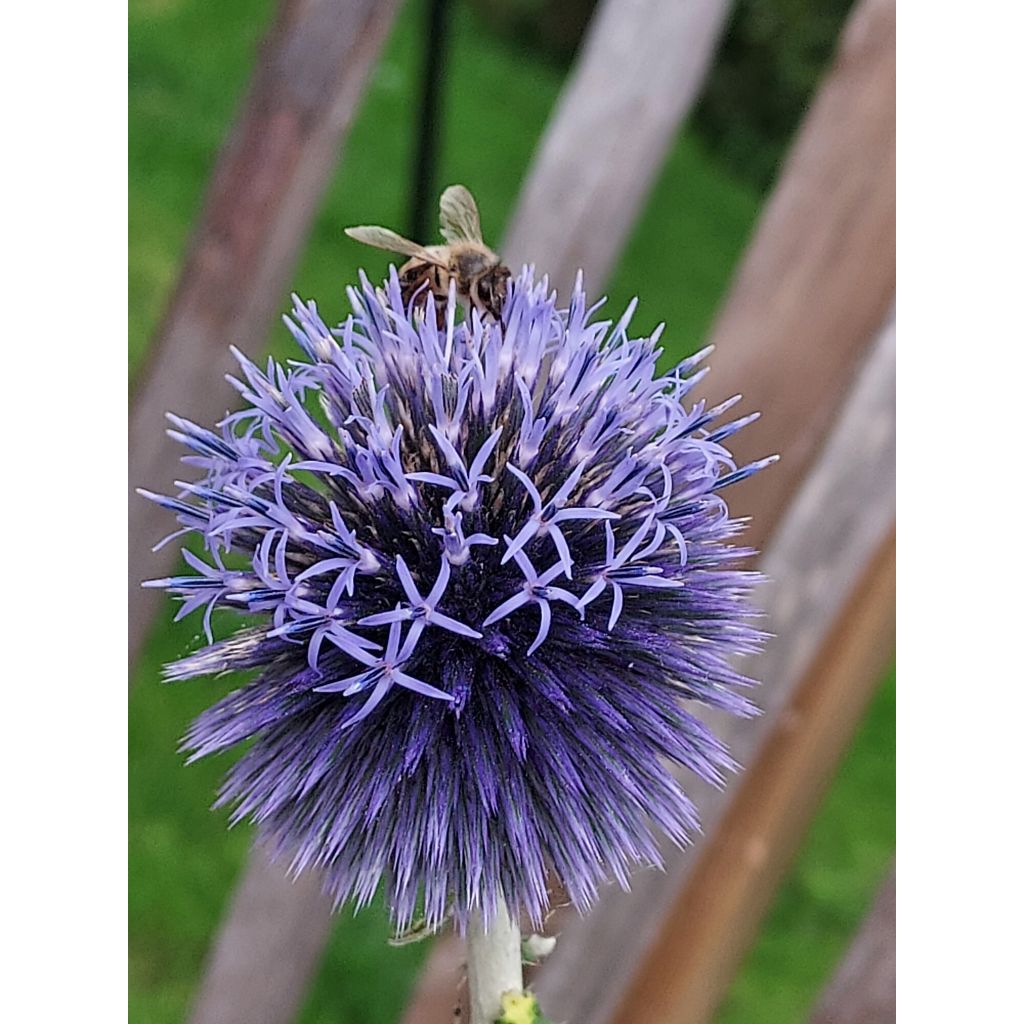

Echinops ritro
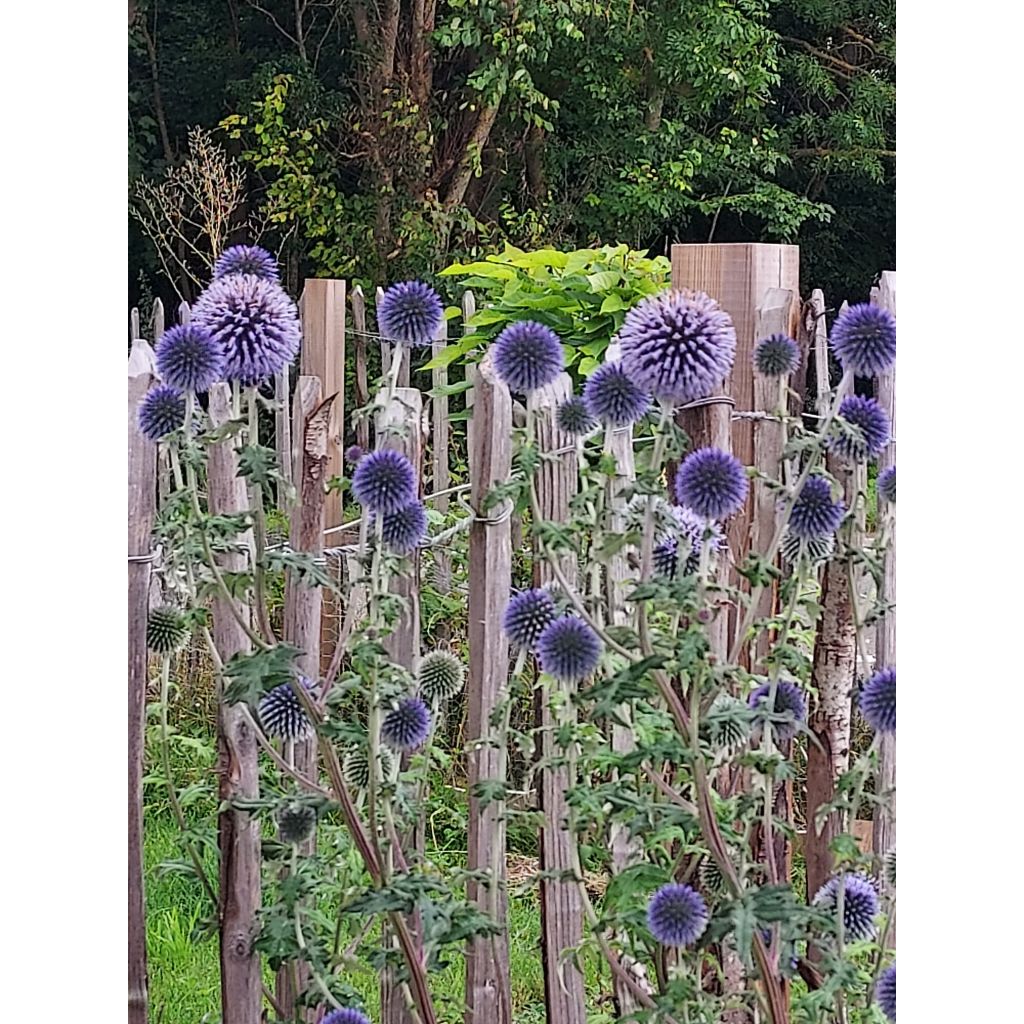

Echinops ritro
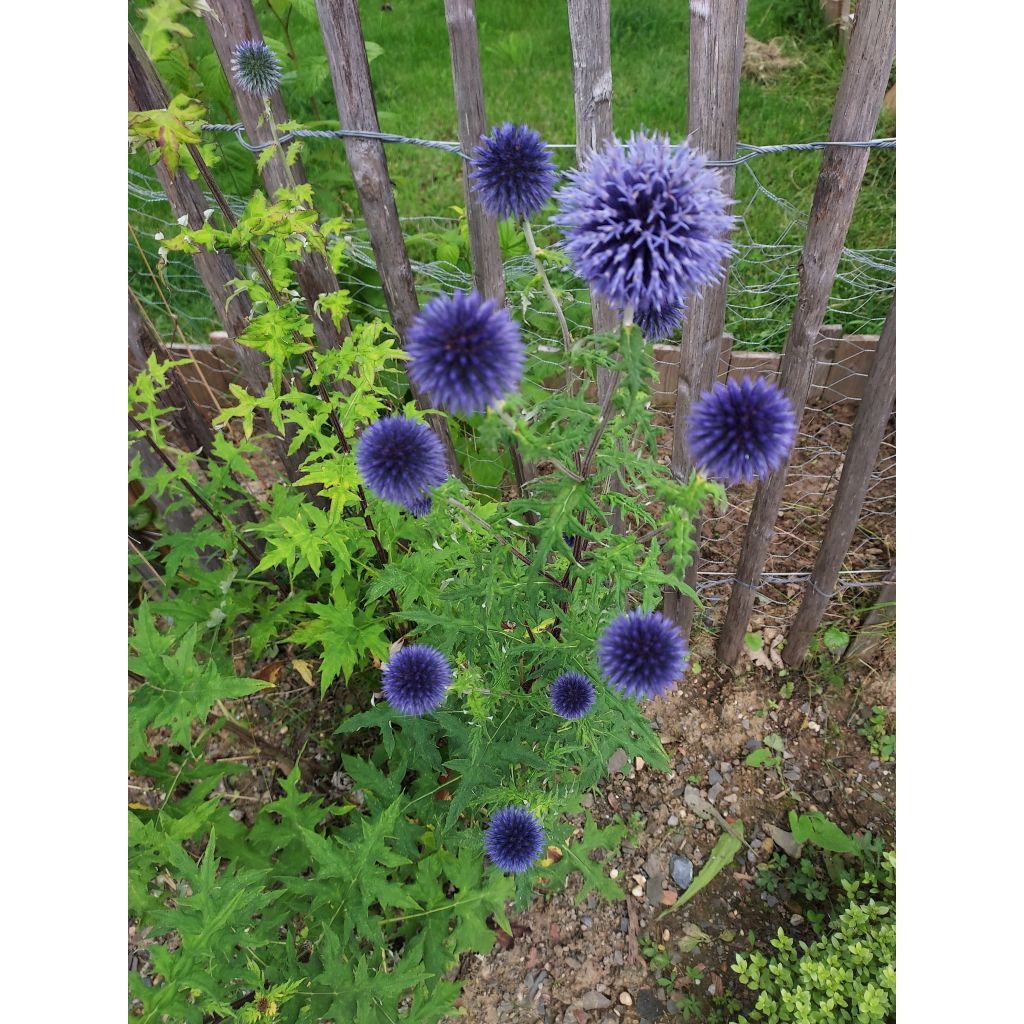

Echinops ritro
Echinops ritro
Echinops ritro
Blue Globe Thistle
This item cannot be shipped to the selected country
Delivery charge from €5.90
Delivery charge from €5.90
More information
Schedule delivery date,
and select date in basket
This plant carries a 12 months recovery warranty
More information
We guarantee the quality of our plants for a full growing cycle, and will replace at our expense any plant that fails to recover under normal climatic and planting conditions.
From €5.90 for pickup delivery and €6.90 for home delivery
Express home delivery from €8.90.
From €5.90 for pickup delivery and €6.90 for home delivery
Express home delivery from €8.90.
Does this plant fit my garden?
Set up your Plantfit profile →
Description
Echinops ritro or Globe thistle is a hardy perennial, particularly suited to dry soils. Its jagged and thorny foliage is green with silvery reflections, and provides a beautiful backdrop for its numerous small ball-shaped flowers of a particularly vibrant blue. This wild-looking ensemble adds a touch of natural beauty throughout the summer season in sunny borders. It actively contributes to garden life by attracting bees and complements dried flower arrrangements with its silver touch.
Belonging to the family of Asteraceae, this Blue Globe Thistle grows spontaneously in Eastern Europe and in parts of the Mediterranean region in uncultivated areas and garrigues. It thrives in the sun, appreciates heat, and tolerates dry and even rocky and limestone soils. Undemanding, it is also hardy and can self-seed. It is therefore a useful plant for holiday homes with minimum maintenance required, but will also appeal to those who love its simplicity and authenticity.
Echinops ritro is an herbaceous perennial with channelled and ramified stems that can reach a height of 1 m (3ft). They bear deciduous leaves, with a leathery appearance, of a green colour tinged with grey-blue. They are alternate, sessile, and embracing. Their lamina is deeply cut, the edges are thorny, and the underside is tomentose. At the top are multiple small balls, 4 to 5 cm (2in) in diameter. These perfect spheres are best observed up close to perceive their subtlety and delicacy. Initially bluish-green, they appear to be made up of multiple points at the beginning of flowering. They then open up and reveal tiny tubular star-shaped flowers in a steely blue colour, sometimes approaching violet. Packed tightly together, they form a cloud of small spheres that brings lightness to borders.
Echinops ritro is a versatile companion. It is suitable for both wild and rustic spaces, but its silhouette, foliage, and flowers are also well-suited to striking contemporary or mineral garden designs. Its colour palette easily harmonises with all pastel shades and blends well with Lavateras, Gauras, and Achilleas. Artemisias, Lychnis, and Euphorbias will echo its silver nuances.
Report an error about the product description
Echinops ritro in pictures
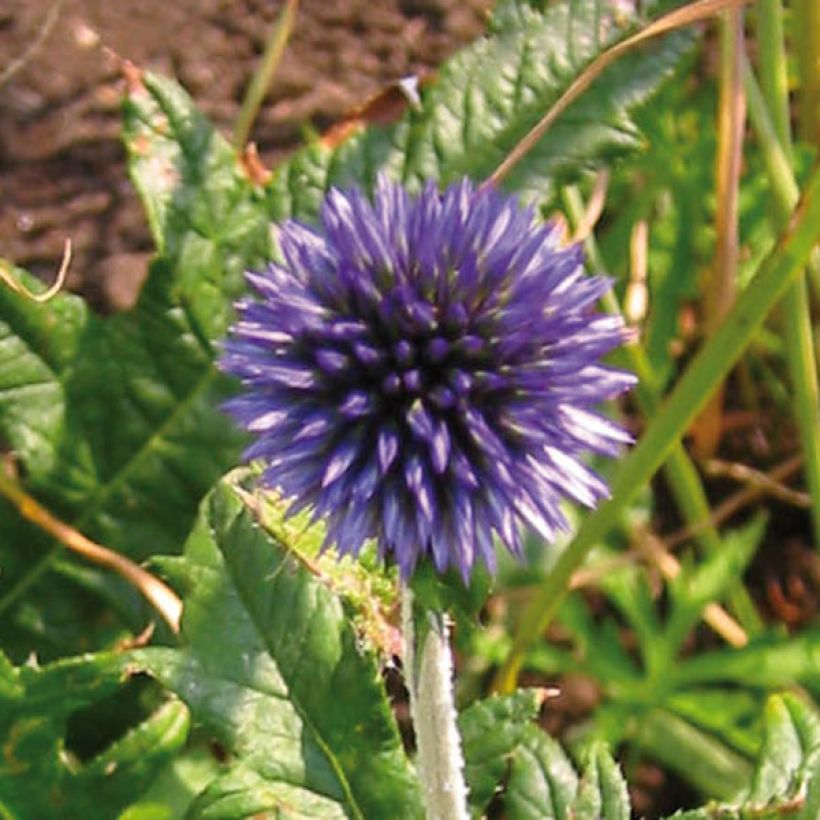

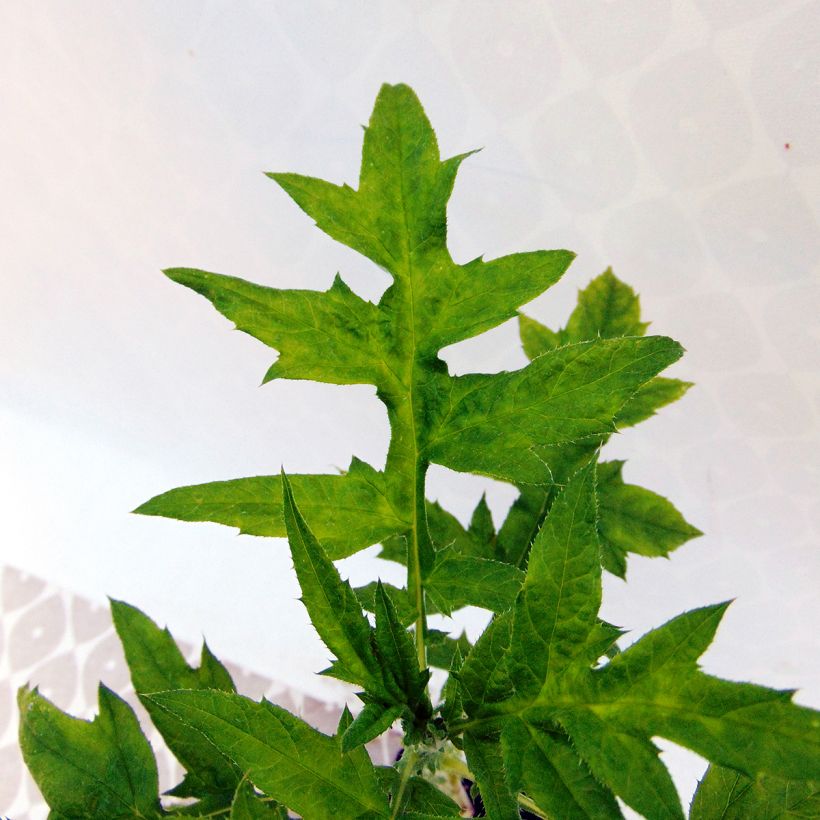



Flowering
Foliage
Plant habit
Botanical data
Echinops
ritro
Asteraceae
Blue Globe Thistle
Mediterranean
Other Ornamental Thistles
Planting and care
The Blue Globe Thistle is quite adaptable. Preferably plant it in full sun in a dry, even rocky, soil. It tolerates limestone soils. If your soil is more moist or heavier, make sure it is well-drained and mix the substrate with gravel when planting. The flowers can be cut and dried to make long-lasting bouquets. If the climate and location suit it, it will tend to self-seed and may sometimes become invasive.
Planting period
Intended location
Care
-
, onOrder confirmed
Reply from on Promesse de fleurs
Haven't found what you were looking for?
Hardiness is the lowest winter temperature a plant can endure without suffering serious damage or even dying. However, hardiness is affected by location (a sheltered area, such as a patio), protection (winter cover) and soil type (hardiness is improved by well-drained soil).

Photo Sharing Terms & Conditions
In order to encourage gardeners to interact and share their experiences, Promesse de fleurs offers various media enabling content to be uploaded onto its Site - in particular via the ‘Photo sharing’ module.
The User agrees to refrain from:
- Posting any content that is illegal, prejudicial, insulting, racist, inciteful to hatred, revisionist, contrary to public decency, that infringes on privacy or on the privacy rights of third parties, in particular the publicity rights of persons and goods, intellectual property rights, or the right to privacy.
- Submitting content on behalf of a third party;
- Impersonate the identity of a third party and/or publish any personal information about a third party;
In general, the User undertakes to refrain from any unethical behaviour.
All Content (in particular text, comments, files, images, photos, videos, creative works, etc.), which may be subject to property or intellectual property rights, image or other private rights, shall remain the property of the User, subject to the limited rights granted by the terms of the licence granted by Promesse de fleurs as stated below. Users are at liberty to publish or not to publish such Content on the Site, notably via the ‘Photo Sharing’ facility, and accept that this Content shall be made public and freely accessible, notably on the Internet.
Users further acknowledge, undertake to have ,and guarantee that they hold all necessary rights and permissions to publish such material on the Site, in particular with regard to the legislation in force pertaining to any privacy, property, intellectual property, image, or contractual rights, or rights of any other nature. By publishing such Content on the Site, Users acknowledge accepting full liability as publishers of the Content within the meaning of the law, and grant Promesse de fleurs, free of charge, an inclusive, worldwide licence for the said Content for the entire duration of its publication, including all reproduction, representation, up/downloading, displaying, performing, transmission, and storage rights.
Users also grant permission for their name to be linked to the Content and accept that this link may not always be made available.
By engaging in posting material, Users consent to their Content becoming automatically accessible on the Internet, in particular on other sites and/or blogs and/or web pages of the Promesse de fleurs site, including in particular social pages and the Promesse de fleurs catalogue.
Users may secure the removal of entrusted content free of charge by issuing a simple request via our contact form.
The flowering period indicated on our website applies to countries and regions located in USDA zone 8 (France, the United Kingdom, Ireland, the Netherlands, etc.)
It will vary according to where you live:
- In zones 9 to 10 (Italy, Spain, Greece, etc.), flowering will occur about 2 to 4 weeks earlier.
- In zones 6 to 7 (Germany, Poland, Slovenia, and lower mountainous regions), flowering will be delayed by 2 to 3 weeks.
- In zone 5 (Central Europe, Scandinavia), blooming will be delayed by 3 to 5 weeks.
In temperate climates, pruning of spring-flowering shrubs (forsythia, spireas, etc.) should be done just after flowering.
Pruning of summer-flowering shrubs (Indian Lilac, Perovskia, etc.) can be done in winter or spring.
In cold regions as well as with frost-sensitive plants, avoid pruning too early when severe frosts may still occur.
The planting period indicated on our website applies to countries and regions located in USDA zone 8 (France, United Kingdom, Ireland, Netherlands).
It will vary according to where you live:
- In Mediterranean zones (Marseille, Madrid, Milan, etc.), autumn and winter are the best planting periods.
- In continental zones (Strasbourg, Munich, Vienna, etc.), delay planting by 2 to 3 weeks in spring and bring it forward by 2 to 4 weeks in autumn.
- In mountainous regions (the Alps, Pyrenees, Carpathians, etc.), it is best to plant in late spring (May-June) or late summer (August-September).
The harvesting period indicated on our website applies to countries and regions in USDA zone 8 (France, England, Ireland, the Netherlands).
In colder areas (Scandinavia, Poland, Austria...) fruit and vegetable harvests are likely to be delayed by 3-4 weeks.
In warmer areas (Italy, Spain, Greece, etc.), harvesting will probably take place earlier, depending on weather conditions.
The sowing periods indicated on our website apply to countries and regions within USDA Zone 8 (France, UK, Ireland, Netherlands).
In colder areas (Scandinavia, Poland, Austria...), delay any outdoor sowing by 3-4 weeks, or sow under glass.
In warmer climes (Italy, Spain, Greece, etc.), bring outdoor sowing forward by a few weeks.

































